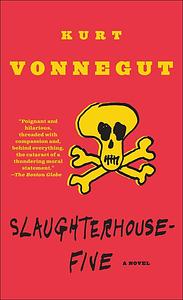You need to sign in or sign up before continuing.
Take a photo of a barcode or cover
challenging
dark
funny
reflective
medium-paced
Plot or Character Driven:
Character
Strong character development:
Complicated
Loveable characters:
Complicated
Diverse cast of characters:
No
Flaws of characters a main focus:
Yes
dark
emotional
funny
reflective
medium-paced
Plot or Character Driven:
Character
Strong character development:
Yes
Loveable characters:
No
Diverse cast of characters:
No
Flaws of characters a main focus:
Yes
Somehow it took me a month to read this book. Weird.
Good read, not what I was expecting. I didn't realise it was a scifi book until after I started reading it. I like the use of quotes and the use of German. The way the book was written was interesting from the perspective of an author but I was a bit lost as a reader with the way it kept jumpting around. The content was honestly a bit boring but since it seemed to be a bit more about the writing than the events contained within the story I can understand that.
All around I did enjoy it and I will read more books by Vonnegut but it didn't live up to the stellar reviews I've heard.
Good read, not what I was expecting. I didn't realise it was a scifi book until after I started reading it. I like the use of quotes and the use of German. The way the book was written was interesting from the perspective of an author but I was a bit lost as a reader with the way it kept jumpting around. The content was honestly a bit boring but since it seemed to be a bit more about the writing than the events contained within the story I can understand that.
All around I did enjoy it and I will read more books by Vonnegut but it didn't live up to the stellar reviews I've heard.
challenging
dark
mysterious
reflective
medium-paced
Plot or Character Driven:
A mix
Strong character development:
Complicated
Loveable characters:
Complicated
Diverse cast of characters:
Yes
Flaws of characters a main focus:
Yes
dark
sad
medium-paced
Plot or Character Driven:
A mix
Loveable characters:
Yes
Flaws of characters a main focus:
Complicated
Have I really never got around to writing a review of this book on here? It's so, so good. Definitely one of my top three, along with the Code of the Woosters, Moby Dick and 1984. Yes, I know I have 4 books in my top 3. What of it?
It's hard to describe the book. It has the same detached tone as a lot of his other works and it has links to his own real life as many of them do, but it's somehow more complete and fully realised. It tells the story of Billy Pilgrim, an innocent young American who is captured and imprisoned by the German army in Dresden near the end of the second world war. But it's much more than that. Billy has come unstuck in time, so the narrative jumps forwards and backwards to his early life, his middle age, and his capture by aliens from the planet Tralfamadore. The strange, comical, chopped-up frame in which he conveys what is ultimately a deadly serious anti-war message is what really makes the book.
It's worth mentioning the chief defect of the book because it's an important one. The book focuses on a controversial event: the Dresden Bombing in February 1945 which is seen by many as unnecessary and vindictive. There's probably some truth in this. After 5 years of war, with London smashed to pieces and the invasion of Germany in full swing, the allies were not pussy-footing around. Vonnegut was really present in Dresden and a lot of the experiences Billy undergoes are real things that happened to Vonnegut, so we would expect to find a lot of first-hand knowledge in the fictionalised memoir. Unfortunately, despite being there, he was just one person on the ground and when it comes to the "big picture" he's reliant on this history books just like the rest of us. And that's a shame because he's been led astray by his choice of reading. For example, he paints Dresden as a sort of bubble of innocence with no soldiers, hardly any Nazis, no war production or important strategic targets. It scarcely seems credible that any such place could exist in Nazi Germany in 1945 and sure enough, I've heard a German historian argue that Vonnegut was unconsciously influenced by pro-nazi propaganda. Nazi sympathisers often try to draw a moral equivalence between allied "crimes" and those of the Nazis and this idea that Dresden was a sort of bucolic town full of pottery workshops and innocent blue-eyed children serves that narrative very well. Vonnegut also gives the number of dead as 135,000 which is a number drawn straight from the work of David Irving, a notorious british holocaust denier. Unfortunately a lot more people have read Vonnegut than Irving and his telling of the story carries a lot of weight today, even after Irving himself has admitted he was wrong (the real number is more like 25,000), which is partly why so many people think of the Dresden bombing as something so much worse than the general waste, murder and destruction that go along with any war.
Vonnegut is no nazi sympathiser of course, and I don't doubt his anti-war credentials for a second, he just chose to believe the wrong historians. In spite of the unfortunate research failings, it's a great, great book and I can't recommend it highly enough.
It's hard to describe the book. It has the same detached tone as a lot of his other works and it has links to his own real life as many of them do, but it's somehow more complete and fully realised. It tells the story of Billy Pilgrim, an innocent young American who is captured and imprisoned by the German army in Dresden near the end of the second world war. But it's much more than that. Billy has come unstuck in time, so the narrative jumps forwards and backwards to his early life, his middle age, and his capture by aliens from the planet Tralfamadore. The strange, comical, chopped-up frame in which he conveys what is ultimately a deadly serious anti-war message is what really makes the book.
It's worth mentioning the chief defect of the book because it's an important one. The book focuses on a controversial event: the Dresden Bombing in February 1945 which is seen by many as unnecessary and vindictive. There's probably some truth in this. After 5 years of war, with London smashed to pieces and the invasion of Germany in full swing, the allies were not pussy-footing around. Vonnegut was really present in Dresden and a lot of the experiences Billy undergoes are real things that happened to Vonnegut, so we would expect to find a lot of first-hand knowledge in the fictionalised memoir. Unfortunately, despite being there, he was just one person on the ground and when it comes to the "big picture" he's reliant on this history books just like the rest of us. And that's a shame because he's been led astray by his choice of reading. For example, he paints Dresden as a sort of bubble of innocence with no soldiers, hardly any Nazis, no war production or important strategic targets. It scarcely seems credible that any such place could exist in Nazi Germany in 1945 and sure enough, I've heard a German historian argue that Vonnegut was unconsciously influenced by pro-nazi propaganda. Nazi sympathisers often try to draw a moral equivalence between allied "crimes" and those of the Nazis and this idea that Dresden was a sort of bucolic town full of pottery workshops and innocent blue-eyed children serves that narrative very well. Vonnegut also gives the number of dead as 135,000 which is a number drawn straight from the work of David Irving, a notorious british holocaust denier. Unfortunately a lot more people have read Vonnegut than Irving and his telling of the story carries a lot of weight today, even after Irving himself has admitted he was wrong (the real number is more like 25,000), which is partly why so many people think of the Dresden bombing as something so much worse than the general waste, murder and destruction that go along with any war.
Vonnegut is no nazi sympathiser of course, and I don't doubt his anti-war credentials for a second, he just chose to believe the wrong historians. In spite of the unfortunate research failings, it's a great, great book and I can't recommend it highly enough.
dark
funny
informative
reflective
medium-paced
Plot or Character Driven:
Plot
Strong character development:
No
Loveable characters:
Yes
Diverse cast of characters:
No
Flaws of characters a main focus:
No
challenging
dark
funny
reflective
medium-paced
Plot or Character Driven:
A mix
Strong character development:
Complicated
Loveable characters:
Complicated
Diverse cast of characters:
No
Flaws of characters a main focus:
Yes
dark
funny
reflective
fast-paced
Plot or Character Driven:
Character
Strong character development:
Complicated
Loveable characters:
Complicated
Diverse cast of characters:
Yes
Flaws of characters a main focus:
No
I have major respect for the way that Vonnegut structured this novel. Flashes and images incorporated between scenarios. I can understand the criticism that some may had towards the confusion that the novel brings, but I argue that that is what makes this novel exciting. Vonnegut reminds us to live our lives by the moment and that life doesn't end but lives through the moments that we have created.




